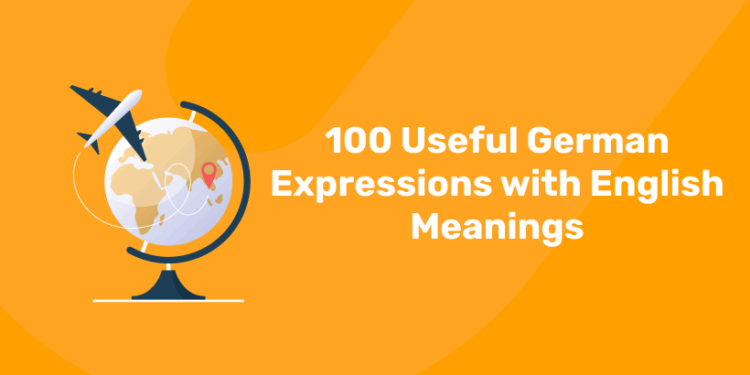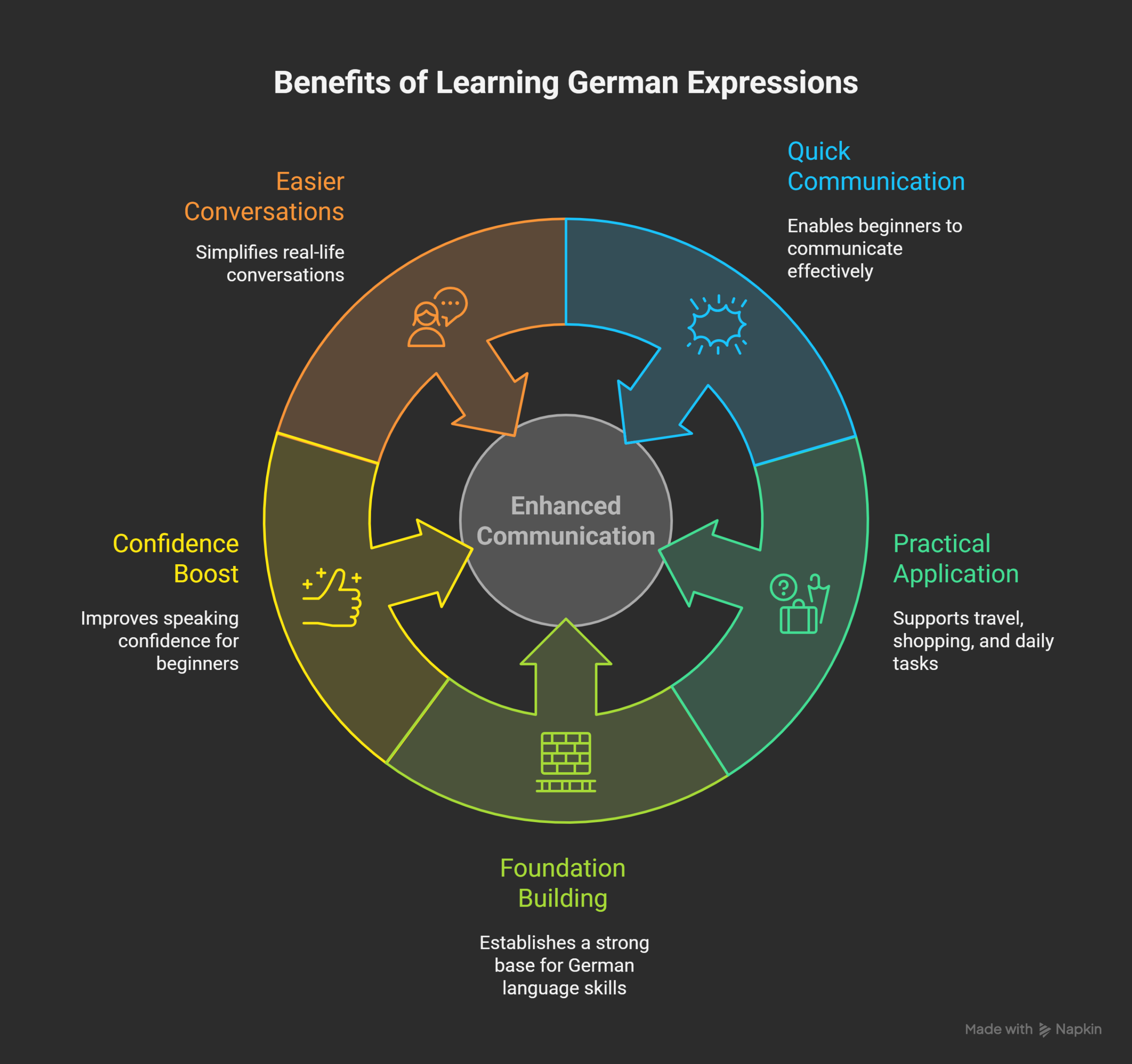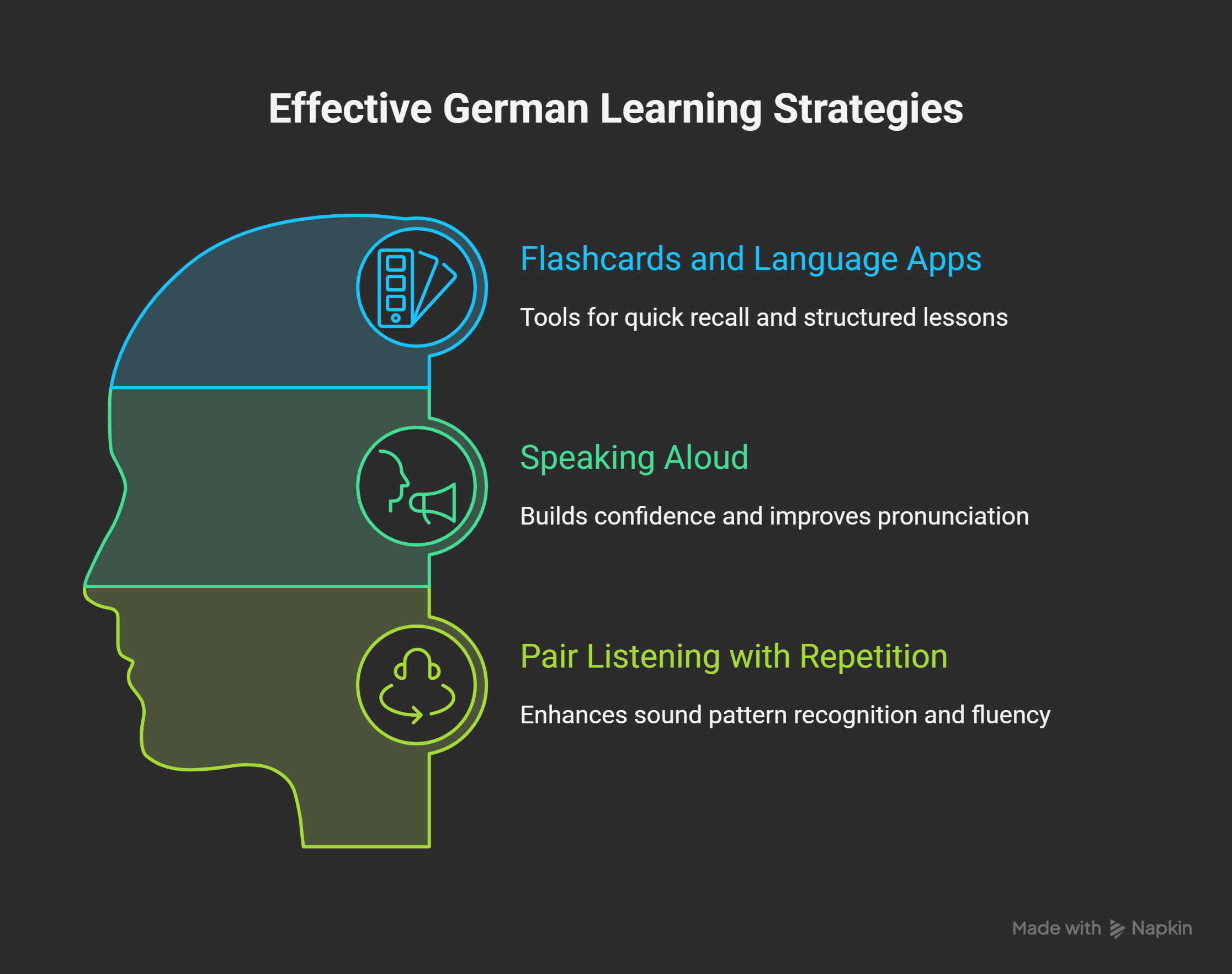Table of Contents
Free UPSKILLING Courses!
Take your first step toward mastering in-demand skills, acing interviews, and securing top-tier jobs with Entri's free upskilling courses.
Start Learning!Frequently Asked Questions
Why should beginners start with basic German expressions?
Beginners should start with basic expressions because they are the foundation of real communication. These phrases help learners interact in everyday situations like greetings, shopping, travelling, or asking for help. Learning simple expressions first reduces fear and builds confidence early. They also make it easier to understand native speakers because you start recognising common patterns. Mastering simple phrases creates a strong base for more complex grammar later.
How do these expressions help during travel in Germany?
These expressions help travelers ask for directions, order food, buy tickets, and manage emergencies. Even a few basic phrases make communication smoother in hotels, restaurants, and shops. Locals appreciate the effort and often respond more warmly. Using these phrases also helps avoid misunderstandings in unfamiliar situations. They make travelling easier, safer, and more enjoyable.
Are German greetings important to learn first?
Yes, greetings are extremely important because they set the tone for every interaction. Simple greetings like Hallo or Guten Morgen make conversations friendly and respectful. They help you start dialogues confidently with strangers or service staff. Greetings also appear in almost every social moment, so they are used very frequently. Learning them early gives you quick wins and boosts motivation.
How can I remember German phrases more effectively?
You can remember phrases better with spaced repetition, flashcards, and daily practice. Repeating short lines aloud helps your brain store sound patterns. Listening to native speakers on YouTube or podcasts improves recall through exposure. Writing phrases down also strengthens memory. Using them in real or simulated conversations makes retention even stronger.
Are polite expressions necessary in casual conversations?
Yes, polite expressions are important in both formal and casual situations. German culture values respect, so words like Bitte, Danke, or Entschuldigung are used very often. They help conversations stay smooth and positive. Using polite expressions also shows cultural awareness, which is appreciated by native speakers. These words make communication more natural and friendly.
How do pronunciation and listening practice help beginners?
Pronunciation practice helps you speak clearly and reduces misunderstandings. Listening practice teaches you natural rhythms, accents, and real-life usage. Repeating after audio materials strengthens muscle memory in your mouth. Together, they help you sound more confident and understand conversations better. These skills grow faster when practiced consistently every day.
Can simple expressions help me understand German grammar?
Yes, simple expressions often reveal important grammar patterns. For example, phrases with ich, du, and Sie show how pronouns work in context. Common question structures help you understand word order naturally. Short sentences also teach verb conjugations without heavy theory. Over time, you pick up grammar intuitively through repeated exposure.
How can I practice these expressions daily?
You can practice them by reading them aloud every morning, listening to German audio daily, or using language apps with short lessons. Adding labels to objects in your home helps you see words often. Talking to yourself in German also strengthens confidence. You can even practice with friends or join online speaking groups. Consistency is the key to progress.
Are these expressions useful for exams or interviews?
Yes, these expressions are helpful in basic German exams because they appear in listening and speaking sections. For interviews or workplace interactions, polite phrases and greetings show professionalism. Even if you are at A1 level, using simple expressions correctly makes a strong impression. They also help you respond quickly without overthinking. These phrases build a strong foundation for more advanced communication skills.
Can learning expressions alone make me fluent?
Learning expressions alone will not make you fluent, but it provides a strong foundation. Phrases help you start speaking early and gain confidence. They reduce hesitation and prepare you for real conversations. Fluency requires vocabulary, grammar, listening, and speaking practice combined. Expressions are the first step toward fluent and natural communication.














